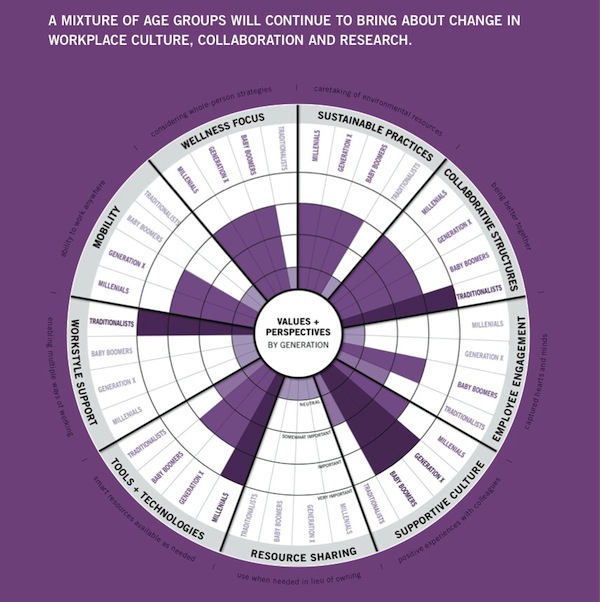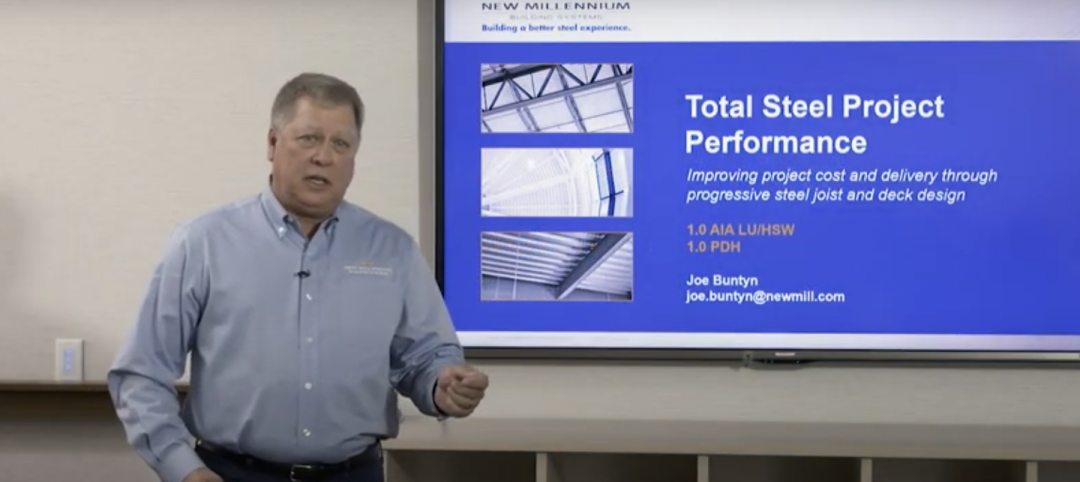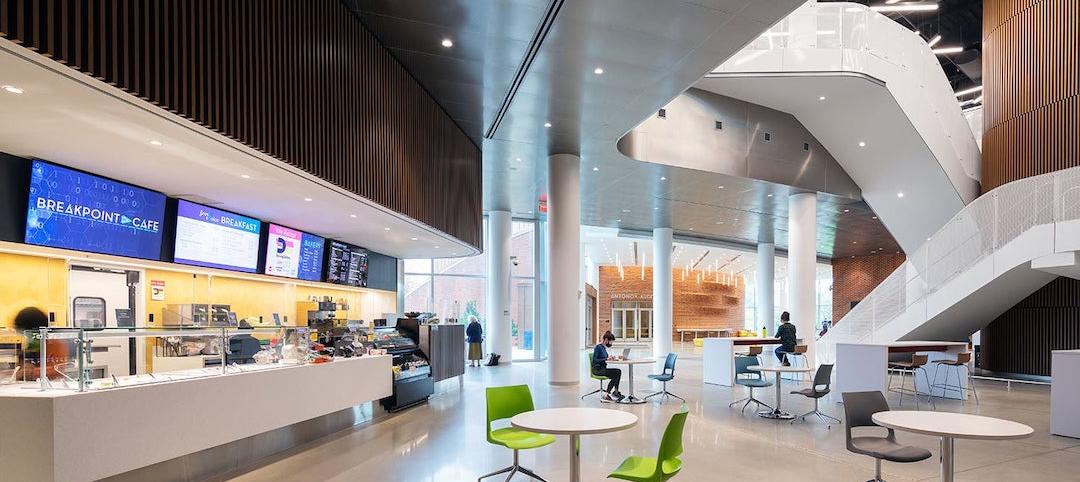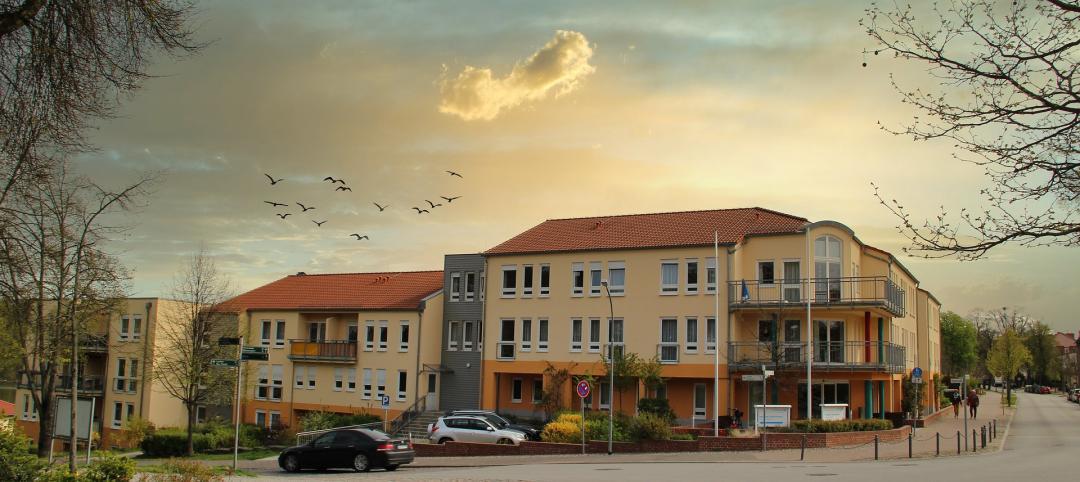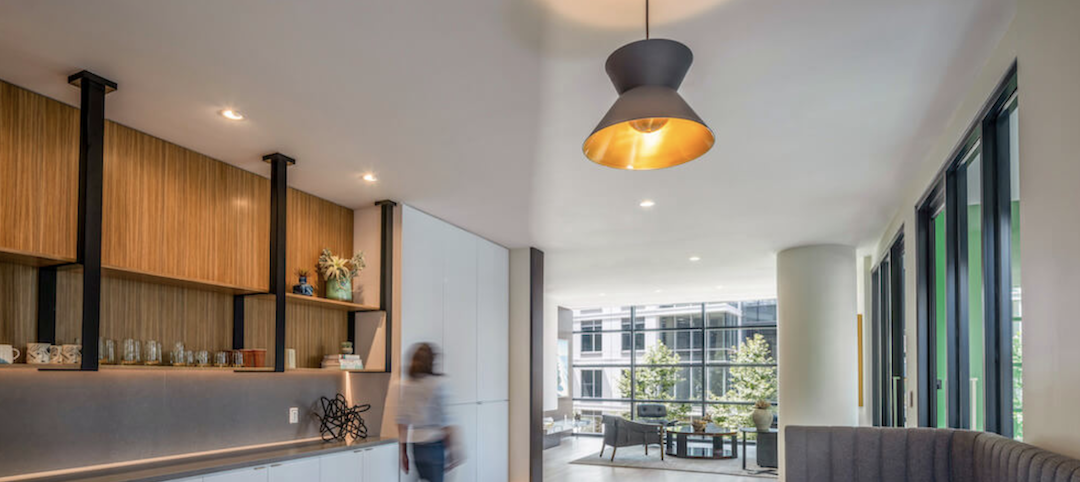Architectural giant Perkins+Will recently surveyed its staff of 1,500 design pros to forcast hot trends in the AEC field for 2014. The resulting Design + Insights Survey reflects a global perspective, influenced by the firm's active international projects.
Trend 1: Design + Resiliency
Robin Guenther, FAIA, LEED AP, Principal/Sustainable Healthcare Design Leader, labels Superstorm Sandy "a critical wake-up call." The report predicts that designers will pay more attention to creating work that accounts for the possiblity of natural disasters. Preparedness will be integrated with community-based design responses to impacts such as earthquakes, tornados, floods, and drought.
Trend 2: Design + Sustainability
Health aspects of building materials, as well as reduction in water use and adaptation to climate change, will be strong focuses in green design. The report characterizes material health as "the number one concern for 2014" among all sustainability issues.
Trend 3: Design + Active Design
Employee health and wellness will be increasingly central to design, the firm predicts. The intention to accommodate more movement opportunities in projects will have to overcome the fact that some clients do not see this as a high priority, particularly in workplace design. Nevertheless, "There are some alarming statistics that indicate movement throughout the day—or the lack of it—is part of a new frontier in predicting health outcomes," according to Joan Blumenfeld, FAIA, LEED AP, Principal/Global Interior Design Leader.
Trend 4: Design + Multigenerational Workplaces
A mix of age groups will continue to force change in workplace culture, collaboration, and research, according to the report. Traditionalists, Baby Boomers, Millennials, and Generation Xers often have very different ideas about what constitutes a productive and effective workplace. Millennials (1980-2000) prioritize tools and technologies, whereas Boomers (1946-1964) place a strong emphasis on a supportive culture. "Design [should address] the diverse workstyles emerging as a result of the generational shift underway," says Frederick J. Schmidt, IIDA, LEED AP, Managing Principal/Global Corporate Interiors Practice Chair.
Trend 5: Design + Technology
Modeling, collaboration, and mobile technologies will dramatically influence better design processes, the report predicts. Current key focuses include energy modeling and environmental analysis; project- and information-management applications; remote collaboration/communications technologies; and smartphones/tablets that enable mobility. Important emerging technologies include free and publicly available data sets, ubiquitous remote sensing, and rapid application development.
Related Stories
3D Printing | Jan 12, 2022
Using 3D-printed molds to create unitized window forms
COOKFOX designer Pam Campbell and Gate Precast's Mo Wright discuss the use of 3D-printed molds from Oak Ridge National Lab to create unitized window panels for One South First, a residential-commercial high-rise in Brooklyn, N.Y.
Engineers | Jan 12, 2022
Private equity: An increasingly attractive alternative for AEC firm sellers
Private equity firms active in the AEC sector work quietly in the background to partner with management, hold for longer periods, and build a win-win for investors and the firm. At a minimum, AEC firms contemplating ownership transition should consider private equity as a viable option. Here is why.
Sponsored | BD+C University Course | Jan 12, 2022
Total steel project performance
This instructor-led video course discusses actual project scenarios where collaborative steel joist and deck design have reduced total-project costs. In an era when incomplete structural drawings are a growing concern for our industry, the course reveals hidden costs and risks that can be avoided.
University Buildings | Jan 11, 2022
Designing for health sciences education: supporting student well-being
While student and faculty health and well-being should be a top priority in all spaces within educational facilities, this article will highlight some key considerations.
Green | Jan 10, 2022
The future of regenerative building is performance-based
Why measuring performance results is so critical, but also easier said than done.
Senior Living Design | Jan 5, 2022
Top Senior Living Facility Design and Construction Firms
Perkins Eastman, Kimley-Horn, WSP USA, Whiting-Turner Contracting Co., and Ryan Companies US top BD+C's rankings of the nation's largest senior living sector architecture, engineering, and construction firms, as reported in the 2021 Giants 400 Report.
Giants 400 | Jan 3, 2022
2021 Government Sector Giants: Top architecture, engineering, and construction firms in the U.S. government buildings sector
Stantec, Jacobs, Turner Construction, and Hensel Phelps top BD+C's rankings of the nation's largest government sector architecture, engineering, and construction firms, as reported in the 2021 Giants 400 Report.
Architects | Dec 20, 2021
Digital nomads are influencing design
As our spaces continue to adapt to our future needs, we’ll likely see more collaborative, communal zones where people can relax, shop, and work.
Architects | Dec 17, 2021
What I wish I had learned in architecture school
Bradford Perkins, FAIA, offers a 3-point plan for upgrading architecture education.
Urban Planning | Dec 15, 2021
EV is the bridge to transit’s AV revolution—and now is the time to start building it
Thinking holistically about a technology-enabled customer experience will make transit a mode of choice for more people.



